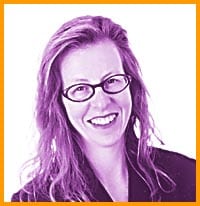So what does the anti-terrorism legislation have to do with the gay and lesbian community? On first glance, maybe nothing. We aren’t the folks waging a holy war against all things American.
But the draft bill and the political environment that accompanies it, should have us all concerned.
Let’s start with the political environment. First, they declared the end of irony. No more irony, no more self or other mocking humour. That should be enough for any self respecting gay person to rise up in protest, in full drag regalia.
And then they declared a war on dissent. Bill Maher, of the US TV show Politically Incorrect, had his sponsors pulled after he pointed out the absurdity of using the word “coward” to describe the terrorists who smashed into the World Trade Centre. George W Bush’s press secretary actually told reporters that no one should be criticizing the president.
And then everybody – the Americans, the Brits and even the Canadians – introduced sweeping new legislation to advance the war on terrorism.
In Canada, the new law includes a definition of terrorist activity that is incredibly broad. It includes anyone who is politically, religiously or ideologically motivated who attempts to disrupt an essential service, unless they are participating in “lawful advocacy, protest, dissent or stoppage of work.”
What does this mean? It means that individuals involved in protests that aren’t lawful – that is, that don’t have permit, or that trespass on private property or something equally minor – could be branded as terrorists. It could include environmental activists who choose to chain themselves to trees for their cause. It could include anyone on an illegal strike.
And it could include gay folks. Let’s imagine that the police raided one of our bars. And let’s say that we are outraged, and stage a big protest and don’t get a permit.
Or imagine that the legislature refused to treat us as equal citizens. During the vote, some of our activists are in the visitors gallery, and begin shouting “shame, shame, shame,” and don’t stop when told to. Imagine that we refuse to leave, and the police forcibly remove us. And then we come back later that night, our numbers multiplied, and stage a massive protest.
Well, let’s see. We did that in the 1980s after the Toronto bathhouse raids. And we did that in 1994, after the first bill to extend same-sex benefits in the Ontario legislature was defeated. But if we do it under the new anti-terrorist laws, we could be branded terrorists. Because we’d have a political purpose, because we could be trying to disrupt an essential service, and because what we were doing was illegal in some very minor sense.
And once we’re terrorists – well, then the full weight of the new law could be brought down upon us. Preventive arrest, investigative hearings and extensive new powers of surveillance.
Is this a likely way in which the law will be used? Probably not. The likely target of the law will be racial minorities who fit the profile – Arab and Muslim Canadians.
But for a community with, shall we say, a strained relationship with the police, we should be the first to protest the extension of this kind of unfettered discretion to law enforcement authorities. We should be the first to understand how this kind of law will be used to target marginalized communities.
And we should be the first to worry about the chilling new environment in which all dissent is suspect. In poll after poll, Canadians say that they are willing to exchange their liberties for greater security. As a community who has seen our civil rights violated over and over again we should be the first to be suspicious of this kind of trade-off.
We all want to live in a safer world, in which we don’t have to worry about planes crashing into buildings or anthrax spores in the air filter system or the lack of small pox vaccinations. But we should also be the first to worry about a government power grab in a moment of mass fear and anxiety.
* Brenda Cossman is a member of the board of Pink Triangle Press, which publishes Xtra.


 Why you can trust Xtra
Why you can trust Xtra


